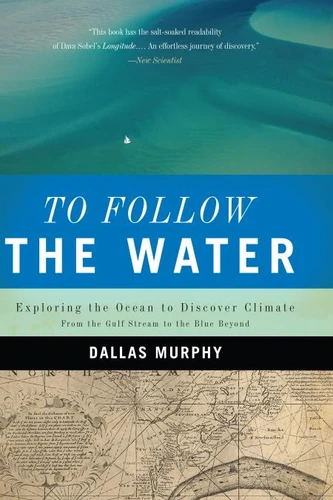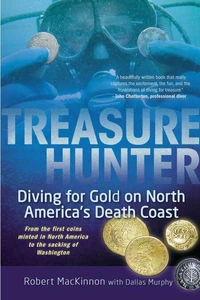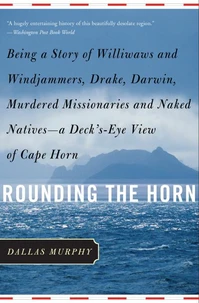To Follow the Water. Exploring the Ocean to Discover Climate
Par :Formats :
Disponible dans votre compte client Decitre ou Furet du Nord dès validation de votre commande. Le format ePub protégé est :
- Compatible avec une lecture sur My Vivlio (smartphone, tablette, ordinateur)
- Compatible avec une lecture sur liseuses Vivlio
- Pour les liseuses autres que Vivlio, vous devez utiliser le logiciel Adobe Digital Edition. Non compatible avec la lecture sur les liseuses Kindle, Remarkable et Sony
- Non compatible avec un achat hors France métropolitaine
 , qui est-ce ?
, qui est-ce ?Notre partenaire de plateforme de lecture numérique où vous retrouverez l'ensemble de vos ebooks gratuitement
Pour en savoir plus sur nos ebooks, consultez notre aide en ligne ici
- Nombre de pages296
- FormatePub
- ISBN978-0-7867-2165-8
- EAN9780786721658
- Date de parution30/07/2008
- Protection num.Adobe DRM
- Infos supplémentairesepub
- ÉditeurBasic Books
Résumé
In To Follow the Water, critically acclaimed author Dallas Murphy artfully recasts the story of human expansion and cultural development with the ocean playing the central role. Applying a novelist's eye for detail and a historian's drive for perspective, he connects the great ages of ocean exploration from Columbus, Magellan, and Cook to the development of modern oceanography. Taking the reader aboard the research vessels Oceanus and Ronald H.
Brown, Murphy observes and participates in the practice of ocean science. Whether demonstrating the proper way to don a survival suit in an abandon-ship drill, actually operating oceanographic instruments, or just sitting down for a breakfast of Dramamine and blueberry pancakes, Murphy humorously evokes daily-life aboard these research vessels, unique amalgams of floating laboratories, heavy industry, delicate measurements, and brute force.
By following the water, he and the reader discover that ocean currents, flowing on the surface and in the abyss like giant blood vessels, transport heat around the globe, thereby stabilizing and moderating our climate. The Gulf Stream, the best-known ocean current, is but one among many, each inseparable from the others and all inextricably linked to the atmosphere in determining the condition of our climate.
There can be no sensible concept of climate that ignores the oceans, yet they have been largely left out of the climate and climate-change discussion. Letting scientists speak for themselves at sea and ashore, Murphy learns that oceanographers are not only observing and explaining the ocean's dynamic, global circulation, but also employing their skills, tools, and techniques to predict climate change.
Their brilliant work is largely unknown outside of professional circles even though the role of the ocean is crucial to our understanding of global warming and climate change. To Follow the Water is an enlightening and entertaining voyage of discovery spanning the evolution of our relationship to the ocean, first as an impediment to human ambition, then as the pathway for Western expansion, and now, most important, as a subject of scientific study with immediate relevance to our future.
Brown, Murphy observes and participates in the practice of ocean science. Whether demonstrating the proper way to don a survival suit in an abandon-ship drill, actually operating oceanographic instruments, or just sitting down for a breakfast of Dramamine and blueberry pancakes, Murphy humorously evokes daily-life aboard these research vessels, unique amalgams of floating laboratories, heavy industry, delicate measurements, and brute force.
By following the water, he and the reader discover that ocean currents, flowing on the surface and in the abyss like giant blood vessels, transport heat around the globe, thereby stabilizing and moderating our climate. The Gulf Stream, the best-known ocean current, is but one among many, each inseparable from the others and all inextricably linked to the atmosphere in determining the condition of our climate.
There can be no sensible concept of climate that ignores the oceans, yet they have been largely left out of the climate and climate-change discussion. Letting scientists speak for themselves at sea and ashore, Murphy learns that oceanographers are not only observing and explaining the ocean's dynamic, global circulation, but also employing their skills, tools, and techniques to predict climate change.
Their brilliant work is largely unknown outside of professional circles even though the role of the ocean is crucial to our understanding of global warming and climate change. To Follow the Water is an enlightening and entertaining voyage of discovery spanning the evolution of our relationship to the ocean, first as an impediment to human ambition, then as the pathway for Western expansion, and now, most important, as a subject of scientific study with immediate relevance to our future.
In To Follow the Water, critically acclaimed author Dallas Murphy artfully recasts the story of human expansion and cultural development with the ocean playing the central role. Applying a novelist's eye for detail and a historian's drive for perspective, he connects the great ages of ocean exploration from Columbus, Magellan, and Cook to the development of modern oceanography. Taking the reader aboard the research vessels Oceanus and Ronald H.
Brown, Murphy observes and participates in the practice of ocean science. Whether demonstrating the proper way to don a survival suit in an abandon-ship drill, actually operating oceanographic instruments, or just sitting down for a breakfast of Dramamine and blueberry pancakes, Murphy humorously evokes daily-life aboard these research vessels, unique amalgams of floating laboratories, heavy industry, delicate measurements, and brute force.
By following the water, he and the reader discover that ocean currents, flowing on the surface and in the abyss like giant blood vessels, transport heat around the globe, thereby stabilizing and moderating our climate. The Gulf Stream, the best-known ocean current, is but one among many, each inseparable from the others and all inextricably linked to the atmosphere in determining the condition of our climate.
There can be no sensible concept of climate that ignores the oceans, yet they have been largely left out of the climate and climate-change discussion. Letting scientists speak for themselves at sea and ashore, Murphy learns that oceanographers are not only observing and explaining the ocean's dynamic, global circulation, but also employing their skills, tools, and techniques to predict climate change.
Their brilliant work is largely unknown outside of professional circles even though the role of the ocean is crucial to our understanding of global warming and climate change. To Follow the Water is an enlightening and entertaining voyage of discovery spanning the evolution of our relationship to the ocean, first as an impediment to human ambition, then as the pathway for Western expansion, and now, most important, as a subject of scientific study with immediate relevance to our future.
Brown, Murphy observes and participates in the practice of ocean science. Whether demonstrating the proper way to don a survival suit in an abandon-ship drill, actually operating oceanographic instruments, or just sitting down for a breakfast of Dramamine and blueberry pancakes, Murphy humorously evokes daily-life aboard these research vessels, unique amalgams of floating laboratories, heavy industry, delicate measurements, and brute force.
By following the water, he and the reader discover that ocean currents, flowing on the surface and in the abyss like giant blood vessels, transport heat around the globe, thereby stabilizing and moderating our climate. The Gulf Stream, the best-known ocean current, is but one among many, each inseparable from the others and all inextricably linked to the atmosphere in determining the condition of our climate.
There can be no sensible concept of climate that ignores the oceans, yet they have been largely left out of the climate and climate-change discussion. Letting scientists speak for themselves at sea and ashore, Murphy learns that oceanographers are not only observing and explaining the ocean's dynamic, global circulation, but also employing their skills, tools, and techniques to predict climate change.
Their brilliant work is largely unknown outside of professional circles even though the role of the ocean is crucial to our understanding of global warming and climate change. To Follow the Water is an enlightening and entertaining voyage of discovery spanning the evolution of our relationship to the ocean, first as an impediment to human ambition, then as the pathway for Western expansion, and now, most important, as a subject of scientific study with immediate relevance to our future.






